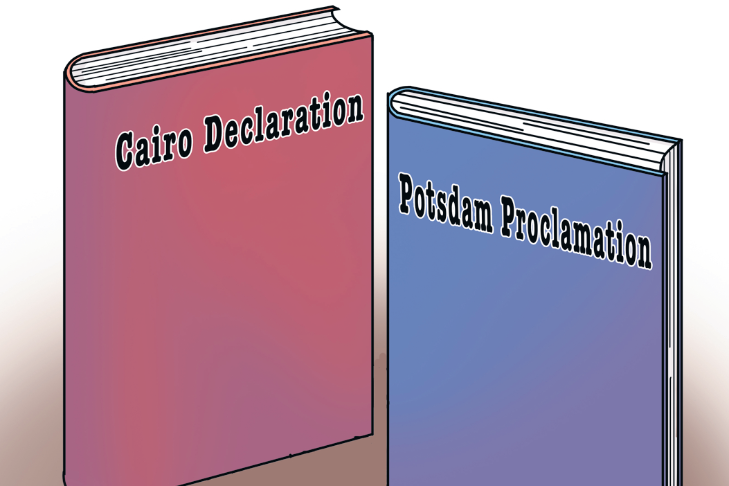Taiwan's return to China a vital part of post-World War II order

Cross-Strait bonds are unbreakable
Being a signatory to the Cairo Declaration and the Potsdam Proclamation, the United States never contested the fact that Taiwan is an integral part of China. After 1945, the US embassies and consulates in China repeatedly communicated with the Chinese government, confirming the restoration of Taiwan to China. In fact, until the Korean War broke out in 1950, the US Department of State clearly said that Taiwan is part of China.
However, as the Cold War intensified, the US gradually abandoned its international commitments in order to fulfill its narrow geopolitical goals. By passing legislation such as the Taiwan Relations Act, the US has emboldened "Taiwan independence" separatist forces and fostered the false narrative of "two Chinas" or "one China, one Taiwan".
By reneging on its commitments, the US has not only violated the fundamental principles of international law but also hurt Chinese people's sentiments.
The US is trying to build a narrative of the "undetermined status of Taiwan" by misusing its domestic legislation. For instance, the US has issued reports claiming that the Cairo Declaration is merely a statement of intent and not legally binding.
Such arguments disregard the fundamental principles of international law. The Cairo Declaration's legal force has been affirmed by Articles 3 and 53 of the Vienna Convention on the Law of Treaties. By deliberately distorting these facts, the US is resorting to double standards to bully other countries and maintain its hegemony.
"Taiwan independence" separatist forces remain the gravest threat to peace in the Taiwan Strait. The Democratic Progressive Party authorities, colluding with external forces, have been de-Sinicizing the island's policies, altering history textbooks, creating higher barriers for cross-Strait exchanges, and even echoing Japan's erroneous "end of war" rhetoric by refusing to acknowledge the end of Japanese colonial rule in Taiwan.
The ultimate aim of the separatist forces on the island is to change the national identity of Taiwan residents. Commemorating Taiwan's restoration from Japanese colonialism serves to tell the world that "Taiwan independence" separatist forces' ploys are unpopular on the island and doomed to failure.
Despite the DPP authorities' evil efforts, the bonds of kinship between compatriots across the Strait are unbreakable. The fact that cross-Strait trade exceeded $300 billion in the first three quarters of this year and Taiwan's investment in the Chinese mainland market increased by 18 percent shows people across the Strait are one family.
Taiwan's restoration to China was the beginning of the advance of integrated cross-Strait development, allowing Taiwan compatriots to share in the glory of national rejuvenation.
Yang Liuchang is chairman of Hong Kong-based China Review Think Tank Foundation.


































